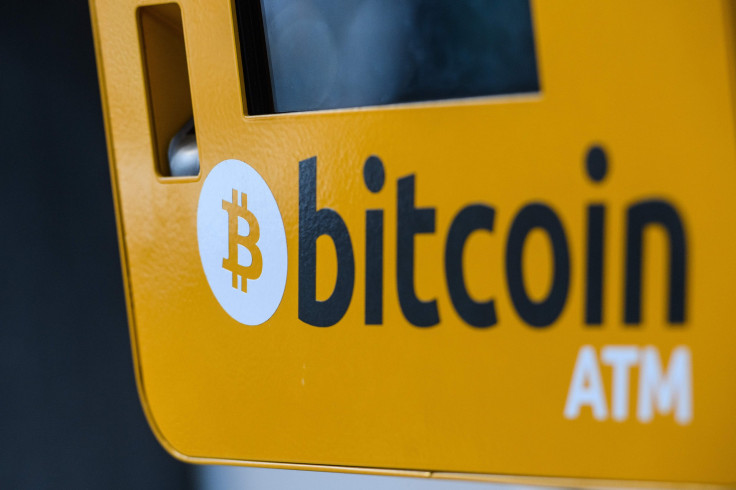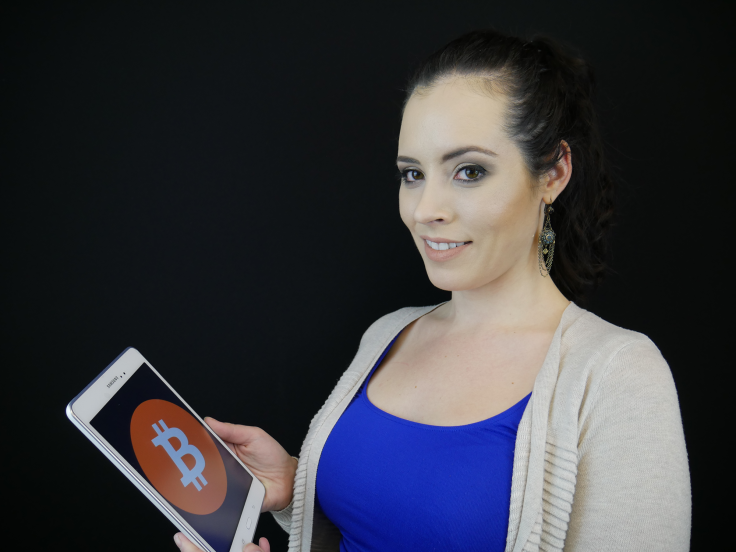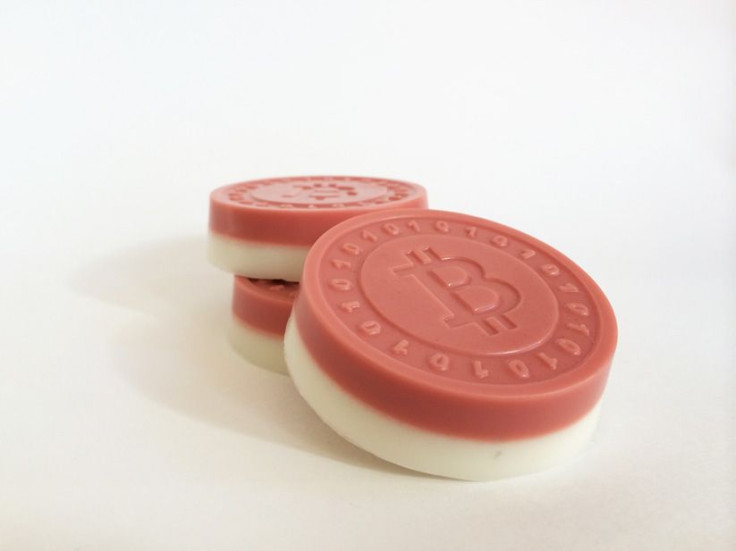Beauty Brands Show Benefits Of Bitcoin Payments

Most veteran bitcoin users "hodl" their digital wealth, aka store it as a long-term investment. Yet a growing number of people are shopping with cryptocurrency, especially when it comes to supporting women-led businesses. Beauty startups are showing how and why shoppers actually want to use cryptocurrency.
Mainstream beauty products are full of harmful chemicals and toxic ingredients. Dermatology specialist Dr. Steve Xu, a resident physician at Northwestern University Feinberg School of Medicine, found 5,144 health-related complaints connected to cosmetic products were submitted to the Food and Drug Administration over the past 12 years. Anyone who regularly sleuths on beauty forums and social media groups sees these types of health hazards are commonplace.
“We have this huge industry and there are lots of chemicals in these products that largely go unregulated,” Xu told Time. Researchers around the world also found cosmetic products for women of color, with different hair textures and deeper skin tones, have an even higher chance of containing harmful substances such as mercury and steroids.
That’s why Maia Singletary, founder of the Chicago-based brand Astrida Naturals, used her tech expertise to help launch her own company. Astrida Naturals accepts both bitcoin and ether, in addition to regular payment methods. “For me, there's less risk of fraud since there are no chargebacks and the fees per transaction are less,” Singletary told International Business Times. “As a niche brand, it's easier and faster for me to move and adopt new tech. I don't have a board of directors or anyone else to consult.”

Niche beauty brands have a unique set of challenges compared to mainstream brands. Their customers tend to be more geographically diverse, so international payments and shipping are both core issues. Plus, customers tend to have higher expectations when it comes to transparency. As such, health-centric beauty startups are more inclined to adopt blockchain technology early on. Amber Wikstrom, co-founder of Nuciya Beauty in Canada, told IBT cryptocurrency users are still rare but that they are a meaningful sector of her customer base.
“Though the number as a percentage of sales is small, we’ve found that cryptocurrency customers generally spend more per purchase,” Wikstrom told IBT. “We have a sizeable amount of international customers. Decentralized cryptocurrencies can help circumvent issues with their local currency or even just provide a little bit more privacy...in the future blockchain could revolutionize how we track our shipments.”

Bitcoin transaction fees are one of the biggest barriers for entrepreneurs who want to accept bitcoin payments, since they can range from just a few cents to $25 per transaction. Yet a spokesperson from Lush UK, one of the few mainstream beauty brands to directly accept cryptocurrency, said 82 customers purchased products with bitcoin since July.
“Blockchain technology offers huge opportunities in creating transparent, fully traceable supply chains from source to shelf,” the Lush UK spokesperson told IBT in an email. “Where we work directly with a large number of small scale growers and producers around the world, many of whom are underserved by the traditional banking industry, cryptocurrencies offer opportunities to speed up payments directly to our suppliers and reduce the costs associated with these transactions.”
Some entrepreneurs are working around bitcoin’s costly transaction fees by accepting other cryptocurrencies too. Sunny Park, founder of the Korean skincare brand MOONIC, told IBT her business plans to add XRP, bitcoin cash and Ethereum payment options in the near future. “We’ve only had a few [bitcoin payments],” she said. “But ironically, the purchases that were made are now worth hundreds of dollars due to bitcoin’s volatility and sudden increase.”
Why would anyone want to spend something as valuable as bitcoin on makeup, hair or skin care products? This question is especially interesting in Korea, where bitcoin has suddenly become so popular South Korean Prime Minister Lee Nak-yeon warned it might corrupt Korean youth by leading them to “illegal activities.” Bloomberg reported 21 percent of global bitcoin trades during a 24-hour burst in activity last week involved Korean won. People like Park encourage thoughtful shopping with cryptocurrency because she wants to change the public perception. Bitcoin can buy more than drugs from darknet markets. It can also buy healthy cosmetics made by ethical companies.
“People like myself could inspire a generation of girls to pursue careers that are often seen as male dominated,” Park said. “The combination of technological prowess in our country along with good role models, and most importantly easy access to bitcoin and blockchain technology, would guarantee a dramatic shift in Korean mentality.”
Accepting bitcoin payments also means entrepreneurs need to figure out how to store and report those earnings. Tax reporting for cryptocurrency is still a nightmare, from Seoul to Chicago. “We are a bit worried about how this will affect us in the future from the perspective of taxes,” Park said. “Especially if we decide to keep our profits in BTC instead of converting to local fiat.”
Park is a former engineer, so she’s keen to see a variety of high-tech solutions for future entrepreneurs. Fashion designers are already experimenting with blockchain-based systems for tracking sustainable ingredients. Walmart now uses blockchain technology to track food shipments and bolster safety precautions. The same concept could apply to cosmetics.
“In our field, safety and transparency about what’s inside the product is very important,” Park said. “So, for example, a mom buying one of our creams could feel very secure knowing what components are used if the creams we sell subscribe to some sort of a blockchain confirmation system that checks their content.”
Wikstrom and Singletary both consider Ethereum their favorite blockchain network because smart contracts could help reshape the beauty industry beyond payments. Blockchain technology could help subvert power dynamics in marketing and ethical production too.
The beauty industry is notorious for manipulative advertising that capitalizes on women’s insecurities. Many women start buying makeup as children. According to a survey of college students at the University of New Hampshire, all 89 respondents who wore makeup began engaging with brands before they turned 18, sometimes starting as young as 12. Regardless of age, most women feel current beauty advertisements hurt viewers’ self image and increase anxiety. But what if an e-commerce platform gave consumers control over what types of advertisements they are exposed to? That’s the idea behind several blockchain startups currently fundraising through token sales, including the Berlin-based e-commerce startup Wysker.
Unlike many other initial coin offerings, Wysker is more focused on thoughtful token distribution than sheer quantity. Wysker co-founder Tobias Haag told IBT more than 1,000 participants joined the token sale so far. The average investment hovers around 1.5 ether tokens, worth around $1,300 by this week's prices. The Wysker platform already includes thousands of products from 300 stores, including Sephora, Urban Outfitters and Dolls Kill.
“We spoke to Unilever a couple of weeks ago and see a huge interest from media companies buying tokens early to 'invest' in advertising budgets,” Haag told IBT. “It opens up completely new opportunities to connect brands with customers. Tokens are then creative ways to increase engagement and build positive brand relationships.”
Wysker’s blockchain network allows shoppers to keep control of their personal data and earn tokens if they choose to offer it to brands. Those tokens can be cashed in on the shopping app for discounts and other perks. “Consent is king,” Haag said. “With the token model added to it, it completely changes the power dynamics as it shifts all the control back to the consumer... I think leveraging user data for manipulative advertising is a means to an end. Our model values the consumers, gives rewards, increases leverage, and ultimately reduces prices.”
The most popular argument leveraged against brands enabling cryptocurrency payments is consumers won’t use it. This simply isn’t true. BitSoaps, a cryptocurrency-themed company offering homemade soaps from California, sold 4,000 soaps since the company launched in 2013. Roughly 80 percent of those purchases were made with bitcoin. “The majority of our sales come around Black Friday and holiday sales,” BitSoap co-founder Kyle Kariya told IBT. “Besides direct sales, we have distributors in Europe and the US who buy in larger quantities...I feel every market is an untapped market for cryptocurrency.”

Kariya runs the shop with his soap-making fiancé, who prefers to remain anonymous because she still holds a day job in cybersecurity. Perhaps a more accurate critique of cryptocurrency payments is that people who don’t already know how to use bitcoin rarely learn for the sake of one product. However, as cryptocurrency becomes increasingly mainstream, more and more shoppers are looking for cryptocurrency payment options.
The beauty industry is one of the most centralized systems, ruled by gatekeepers such as fashion magazine, women’s media outlets and corporate brands. Customers of all genders are looking online to find healthy, ethically made products by smaller producers. Shoppers then want to buy those products directly by using transparent payment systems like bitcoin. “When it comes to international payments, I feel it [cryptocurrency] makes it so much easier, secure and convenient for all parties involved,” Park added.
There’s still a long way to go before blockchain technology is a mainstream component of the beauty industry. Forbes reported the $445 billion beauty industry is full of tech-savvy female entrepreneurs, many of which struggle to raise money from traditional venture capitalists. Engaging directly with the cryptocurrency community is one way these women are overcoming the challenges of growing a niche brand.
“I think it's going to take a while before we see any meaningful adoption,” Singletary described how the broader beauty industry is slow to change. “I realize I'm somewhat ahead of the curve in this. But overall, beauty consumers are tech savvy and when the time comes they will pick it up with ease.”
© Copyright IBTimes 2025. All rights reserved.



















